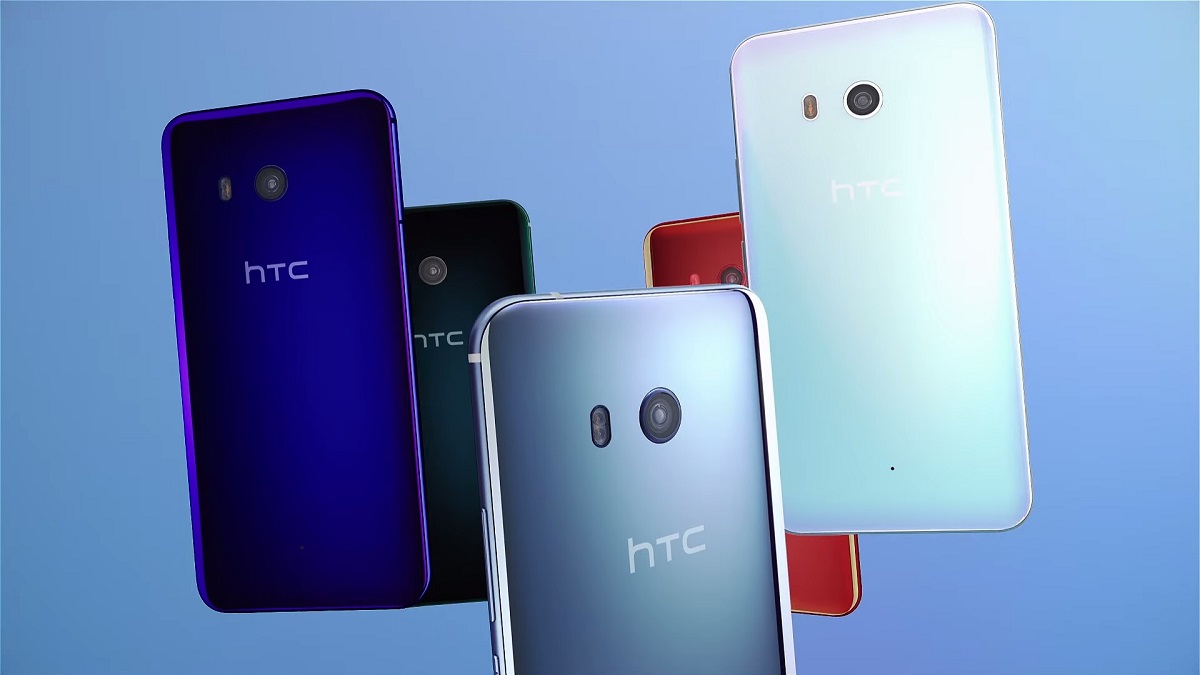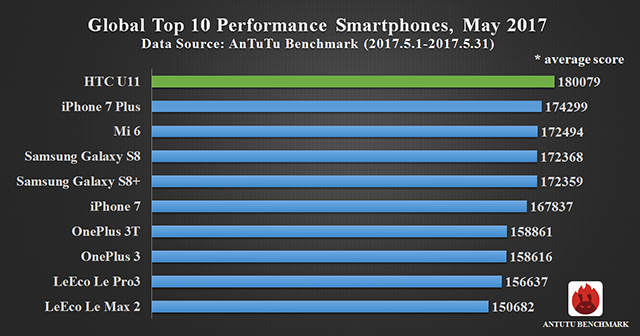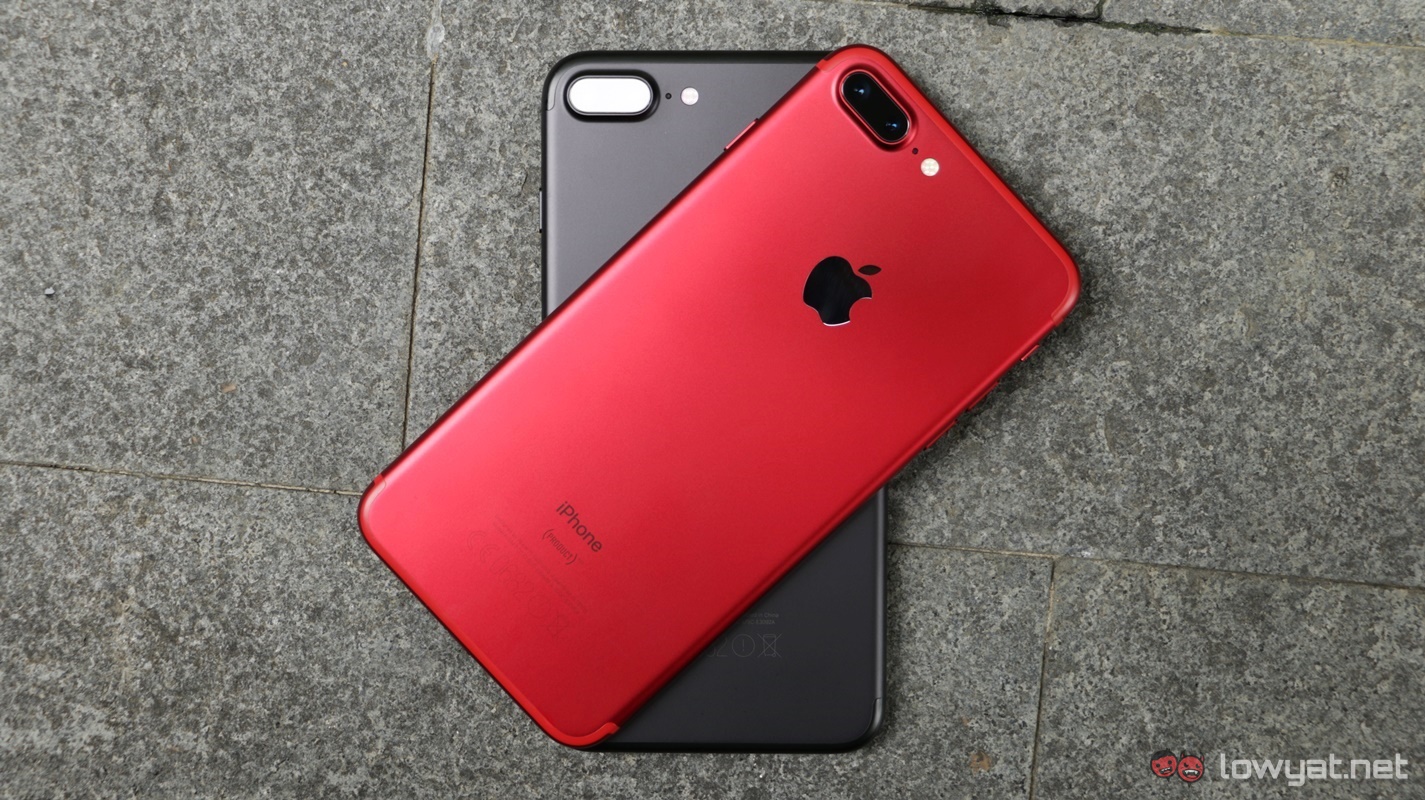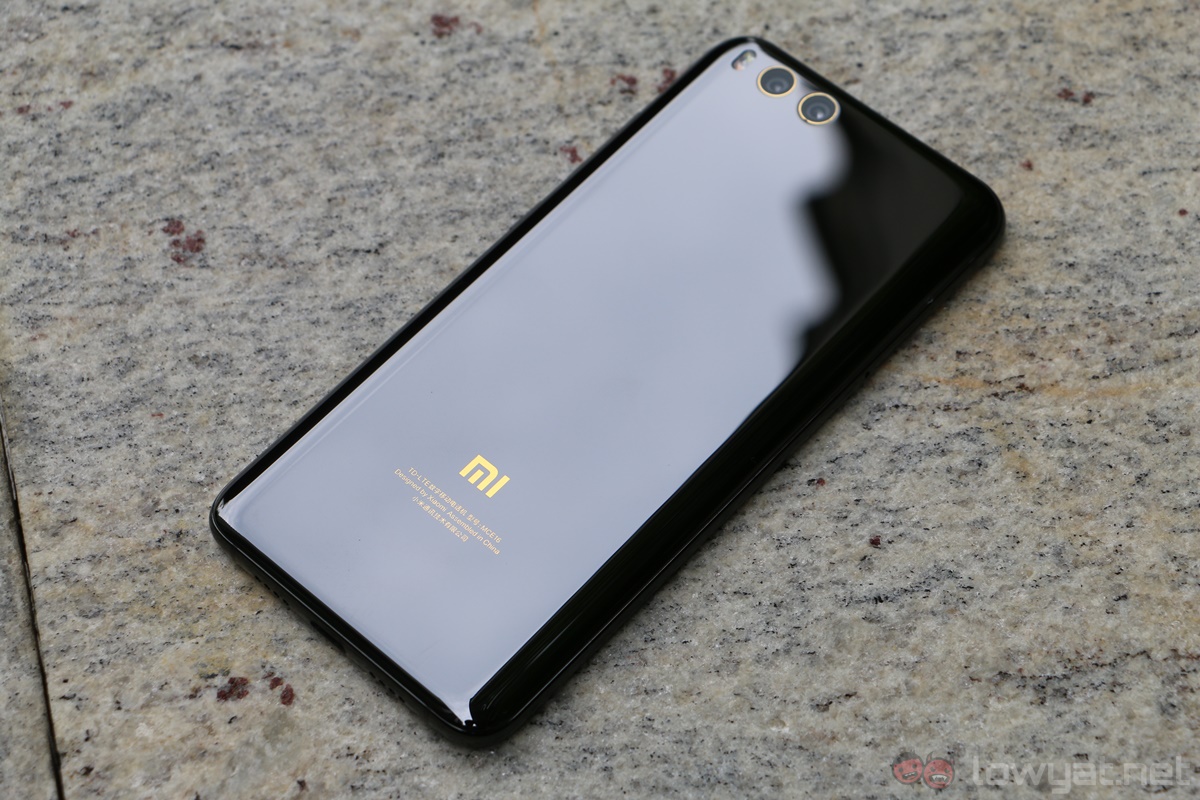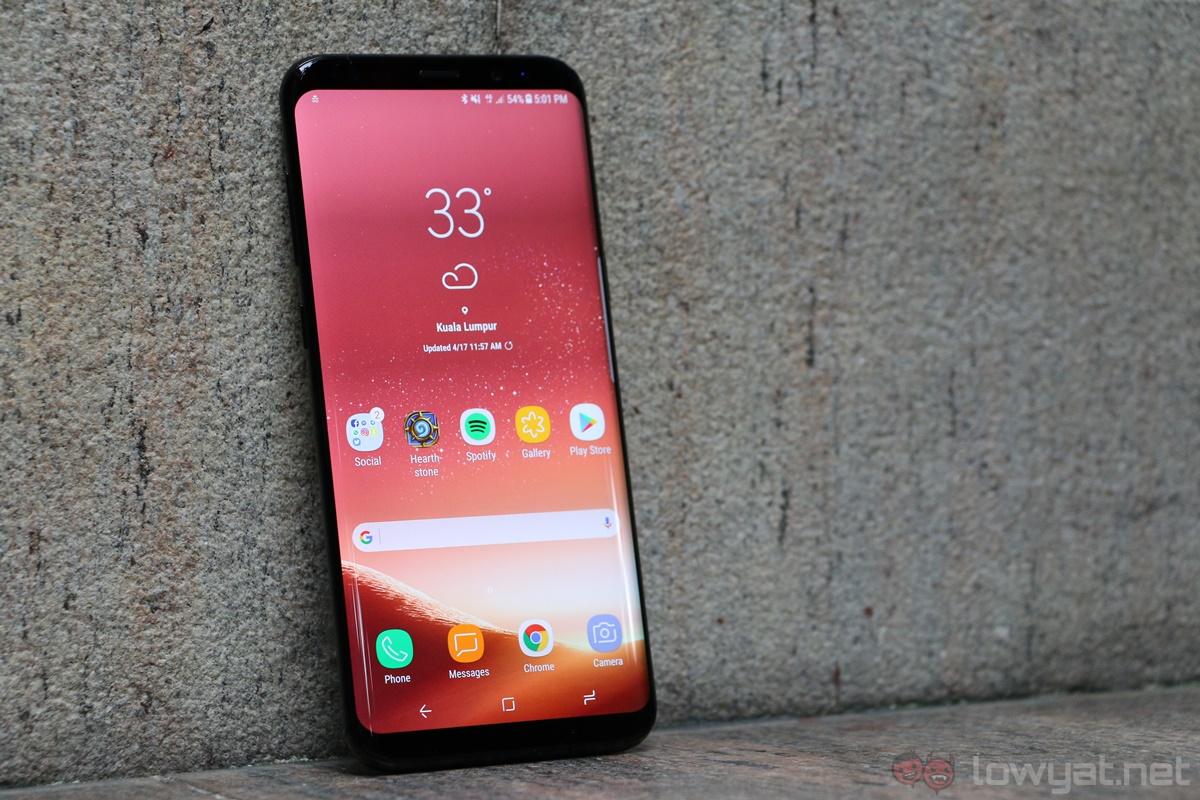For the first time in almost a year, an Android smartphone has finally beaten the iPhone 7 Plus in the popular Antutu benchmarking app. Used around the world as a measure of a smartphone’s performance, the recently-released HTC U11 has clocked in the iPhone-beating score.
Since it was released last year, the iPhone 7 Plus has been at the top of Antutu’s benchmark scoring charts for every month up until April 2017. For the month of May 2017, the global average benchmark scores for the U11 surpassed that of the iPhone 7 Plus – and by a noticeable sum too (180,079 vs the iPhone’s 174,299).
However, the U11’s score is actually lower than the highest average benchmark score recorded by the iPhone 7 Plus back in January 2017. That month, the global average score was 185,494. Since then, the iPhone 7 Plus has been recording gradually lower scores. Antutu speculates that the reduction in scores is due to the recent iOS 10.3 update.
Interestingly, in third place is the Xiaomi Mi 6, edging out the Samsung Galaxy S8 series by just a fraction.
Clearly, this surge in benchmark scores from the Mi 6 and U11 is down to Qualcomm’s powerful Snapdragon 835 chipset. The Apple A10 Fusion chip offers exceptional performance, but it appears Qualcomm’s flagship SoC holds its own just as well.
The top five is rounded out by Samsung’s Galaxy S8 series, which come in either Snapdragon 835 or the company’s own Exynos 8895. Antutu did not mention which variant was recorded for the benchmarks, but they are known to vary only slightly in performance.
These scores are a testament to Qualcomm’s recent resurgence in mobile chipset performance. After a poor showing in 2015 (just look at the results here), it appears flagship Android smartphones are slowly creeping up to Apple in terms of sheer hardware performance. Actual user experience is, of course, another matter altogether.
(Source: Antutu)
Follow us on Instagram, Facebook, Twitter or Telegram for more updates and breaking news.


